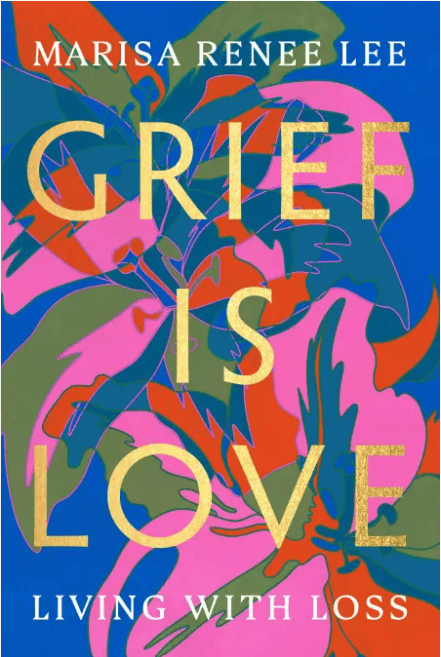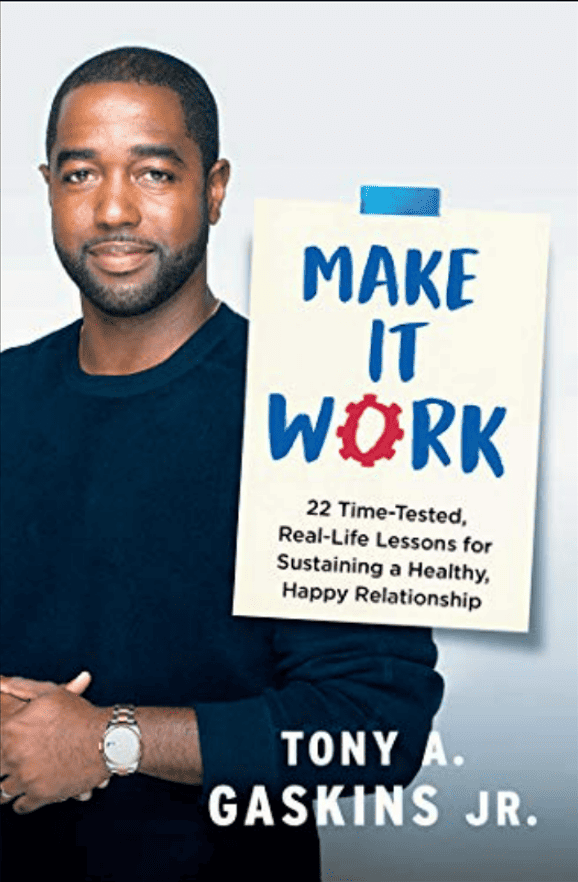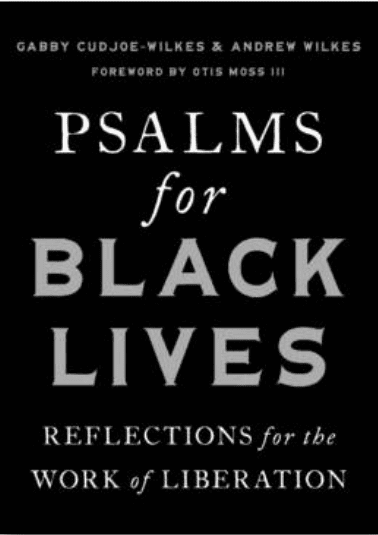Description
A trusted grief expert shares what Kirkus Reviews praises as “calm, lucid prose… [a] humanizing exploration of coping with the life-changing tides of loss.”
In Grief is Love, author Marisa Renee Lee reveals that healing does not mean moving on after losing a loved one —healing means learning to acknowledge and create space for your grief. It is about learning to love the one you lost with the same depth, passion, joy, and commitment you did when they were alive, perhaps even more. She guides you through the pain of grief–whether you’ve lost the person recently or long ago–and shows you what it looks like to honor your loss on your unique terms, and debunks the idea of a grief stages or timelines. Grief is Love is about making space for the transformation that a significant loss requires.
In beautiful, compassionate prose, Lee elegantly offers wisdom about what it means to authentically and defiantly claim space for grief’s complicated feelings and emotions. And Lee is no stranger to grief herself, she shares her journey after losing her mother, a pregnancy, and, most recently, a cousin to the COVID-19 pandemic. These losses transformed her life and led her to question what grief really is and what healing actually looks like. In this book, she also explores the unique impact of grief on Black people and reveals the key factors that proper healing requires: permission, care, feeling, grace and more.
Excerpt from the Publisher:
WHAT’S INSIDE
The heart of the wise is in the house of mourning.
—Ecclesiastes 7:4
Grief Is Love
MY MOTHER LIVES in the water.
In the fluidity, the comfort, and the power of water is where I find her. I run to the water when things get hard. I can find her in a warm bath, in the fresh scent that emerges after a light spring rain, in the vastness and overwhelming power of the ocean. And just as I need water to live, I stubbornly refuse to live without the love of my mother. And you don’t need to live without the love of your person either.
We are taught that grief is something that arrives in the immediate aftermath of death, and while that’s certainly true, it’s not the whole story. Grief is the experience of navigating your loss, figuring out how to deal with the absence of your loved one forever. It’s understanding that the pain you feel because of their absence is because you’ve experienced a great love. That love doesn’t end when they die, and you don’t have to get over it. My hope in writing this book is to give those of us who know loss, and those who care to understand our experiences, a bit of guidance for living a full life after losing someone we love—a life where we can continue to love them, grieve them, and honor them on our terms. I’ve written what I wish I knew when I lost my mother fourteen years ago, and the many lessons I’ve learned since. As I sit writing this on October 18, 2021, the United States has lost more than 720,000 lives to COVID-19; globally, we’ve lost 4.5 million people to this pandemic. Like you and me, each of these people has left behind loved ones who are, for the first time, trying to figure out life after death. We can no longer afford to ignore grief, to relegate it to whispered conversations, to expect folks to navigate their brokenheartedness on their own. It is neither practical, nor possible, nor humane.
My mother, Lisa, took her last breath on February 28, 2008, ten days after turning forty-nine. I was with her when life left her body. I did the thing I had prepared for as her daughter and one of her caretakers, the thing I promised her: I ensured she died on her own terms, the way she wanted to, in our home. I was twenty-five, and it felt like the epitome of adulting, but what I didn’t know, what no one told me, was that her death was also a beginning. Her death sparked a new life for me. At 5:37 p.m. that day in February, I was forced to start learning how to live without her, how to somehow live a full and joyful life, with a permanent hole in my heart.
When she died, I was unmoored. I was an adult in name only, and just as I was trying to sort through who I was and how I wanted to show up in the world, my sense of self was destroyed. Losing my mother meant losing myself too. Who would I be without my mother? We are irrevocably changed when we lose someone we love because so much of who we are is a reflection of the people who love us, and now one of those people is gone. In the beginning, the mere act of sustaining your own life feels impossible.
But I promised my mother I would be fine, so I “returned” to my life. The act of returning is often the hardest part. What does life look like without her, without my person? We don’t know. But we push ourselves to do it anyway, sometimes by force.
And I am nothing if not the epitome of a strong Black woman, a type-A striver. I may as well have “I’ve got this” tattooed on my back. I returned to my job on Wall Street and my wannabe Sex and the City existence two weeks after my mom’s death, and I did the thing Black women have been doing for centuries: I kept my mouth shut about the extent of my pain. As I attempted to cobble together the former pieces of myself with what was left, I thought it was normal to feel sad for perhaps the first few weeks. I didn’t know it was normal to feel sad on and off for years, for what feels like it will be for the rest of my life. I didn’t know anger, envy, frustration, depression, anxiety, and shame were common elements of grief. I did not understand the importance of grace and the need to extend it to myself and others. I had no idea that grief was actively impacting my body and my brain in ways that made maintaining my health, my career, and my relationships challenging.
I didn’t know all these things were grief, and perhaps more importantly, I didn’t know all of these things were normal, so I fought them, and I hid them, and I lied about them to myself and others. I assumed there was something wrong with me for having so many feelings about a dead mother. I was embarrassed and ashamed. So I did my best to keep my feelings to myself, if I even acknowledged them at all.
As I continued to move further and further away from that fateful day in February, I found myself mourning her death over and over again. Her absence and my loss seem to know no limits. I grieve for the relationship we could have had as adults, the relationship she would have had with my husband. The delicious new recipes we might have exchanged or an eye roll we might have shared at something ridiculous my dad just said. Her absence is particularly acute when shitty things happen in my life: an infertility diagnosis and loss of a much-wanted pregnancy, supporting my sister through her mental illness, fear in the midst of a global pandemic, the battles and anxieties that spark at the turn of a key daily in life. At one time I would have been able to call my mother, to ask for her advice, to hear the warmth of her voice. It’s in these big and tiny corners of my life that I miss her every day.
When I lost my pregnancy, I was once again forced to confront the overwhelming pain and disorientation that arrive immediately following a loss. I learned that grief is love. I felt foolish for being upset over a bundle of cells, but then I realized I felt sorrow, not for these cells, but because of all the love and hope I held for this future child and my role as her mother. It wasn’t about how far along the pregnancy was; it was about an imagined future that would never come to pass. And I yearned for my mother during those weeks and months because of the unconditional love, support, and comfort she provided to me throughout her life. Love serves as the foundation for our most intimate relationships, so of course we grieve when those we love are no longer here to love us in the ways we’ve come to expect. My desire to become a mother is inextricably connected to the love I have for my mother and the love she has for me. That love is a present-tense kind of love, not something that is stuck in the past. Even in death, she is mine.
Grief, like love, is also limitless, which means we have to find a way to live with it. To understand that it is your deep love for the person. Your loss is yours alone; no matter who you lost or when you lost them, you deserve to honor that love, you deserve to live a full life after death while still loving them. No one can tell you how to handle your resulting grief, but my goal in sharing my stories and missteps is to provide you with a sense of comfort and community, and maybe even an occasional smile. In addition to my many foibles and occasional lessons, I wanted to ensure this book was not just about me and my story, so it is also grounded in the leading research on grief and loss. Because everyone’s experience with grief is different, do not use this book as a road map, or set of specific instructions. Instead, I hope it might serve as a compass to help you navigate your unique journey.
Marisa
1
…Permission
PERMISSION ISN’T A common word in discussions about grief, but it’s what’s been missing. Giving yourself permission to grieve is the beginning of the journey: permission to know that you have loved and cherished someone’s life deeply and will continue to.
There comes a time when you have no choice. Permission to grieve becomes required.
You never understand just how useless you are as an individual, how mortal, how humane and powerless you are until you know that someone you love is dying, and there is absolutely nothing you can do to stop it from happening. The anticipation of a day you would do anything to prevent, but can’t; it isn’t just an emotional pain, it is all encompassing. This feeling is felt in your headaches, insomnia, body pains, stomachaches, loss of appetite, or an appetite for everything. I lost over twenty-five pounds the year before my mom died, and I didn’t notice it, I just started wearing more belts. You are forced to exist in this tenuous space between life and death, and there is often an ominous undertone to everything. I remember what I call “the beginning” of my mom’s death well, the moment when I knew that her life would one day end, that it was more than possible, it was a guarantee. It was an idea that I could never have mentally or emotionally fathomed, molded into a real thought before this time, though I had cared for her many years through her illness—but now it was happening.
“Can you feel that?” the doctor asked.
“Yes,” she admitted. And just like that, my grief journey began.
It was a muggy afternoon in June, and I was supposed to be at college enjoying Senior Week festivities in advance of my graduation. Instead, I found myself standing in a corner furiously taking notes in a doctor’s office in Fishkill, New York, with my mother, father, and godmother. Examination rooms are not made for that many additional guests, but I was determined at twenty-two to be the fourth adult in the room because I needed to know with certainty what exactly was wrong with my mother. She was lying faceup on the examination table wearing one of those ridiculous paper shirts. An orthopedic doctor, a family friend, had recently discovered cancer in her bones, but now this oncologist was touching her breasts. I knew just enough about cancer to know this was not good. My palms started to sweat. He gently lifted my mother’s hand and placed it on her left breast and asked, “Can you feel that?”, and she replied, “Yes.” The floor opened up beneath my feet. The stability I had previously taken for granted was replaced by the pain that arrives when you learn that someone you love is going to die. It was a deep sense of foreboding, a bodily knowledge of things to come that you would do just about anything to avoid. I didn’t have an understanding of what grief was or how it felt. After he removed her hand from her breast, my deepest fears were confirmed. He patiently explained that my mother had breast cancer that had already migrated to her bones. A death sentence. At the time, it felt foolish and, frankly, immature of me to be so upset about her future death while she was still with us, so I didn’t give myself permission to grieve. I gave myself permission to step up and soldier on.
My mother had been sick with multiple sclerosis since I was thirteen. My sister has bipolar disorder. I had no idea what it might look like to give myself permission to be the needy one, permission to make a scene, permission to acknowledge just how quickly those four words, “Can you feel that?” broke my heart. I knew if cancer was in her bones that started in her breast, her diagnosis was stage 4: treatable but not curable. She was going to die soon. Instead of giving myself permission to feel anything, I shut my feelings off, and I stepped up to help my mom and dad like everyone expected me to.
After death isn’t the only time to grieve. The period before death can be filled with anguish and all sorts of complicated feelings, and the only thing that makes grief—whether before or after death—even a tiny bit easier is giving yourself permission to grieve on your terms. Whether it arrives before death or a decade later, when you hold your newborn son in your arms and all you can see is your dead father’s face, give yourself permission to feel grief, to experience the fullness of it, to let it break your heart or to let it make you smile. Grief is not solely limited to wailing, devastation, and pain. Grief can also be a laugh, a memory you share with a loved one recalling something your person said, or a joke about the time that your mom saved one friend’s hair after another friend accidentally dyed it orange (true story, my mom did things like that even for my friends). Living with loss requires you to give yourself permission to grieve however you want to for the rest of your life…because grief is love, and both love and grief live on.
Permission to know it is okay to grieve is the freedom that we all need. Permission to remove, or at least reduce, any sense that “you’ve been too sad for too long,” that you might not be “grieving right,” or that you “aren’t grieving often enough.” Grief is deeply personal; you are the sole authority on how it should be done, and only you can grant yourself permission to experience grief. And you must make a decision to walk this path that your soul hungers to express. On your grief journey, begin by granting yourself consent to do it however you need to, to be whoever you need to be, to feel whatever you might feel. It will make living with loss easier, more bearable, and less burdensome.
The earlier that you start to give yourself permission to grieve, the better. Grief is never easy, but you can make it a little bit lighter.
If you are helping to care for your loved one or if you serve as a primary caretaker, there is a load of grief you must confront every day. There’s not a place you can hide from it; it’s in front of you. There’s a constant reminder of their death sitting right in the task at hand that you must do for them. Often with this role come guilt and resentment. Guilt anytime you might complain about how challenging life is as a caretaker, because at least they are still here. Resentment toward anyone who doesn’t have to balance the challenges that come with caretaking, with preparing for their death, all while managing the expectations of your “normal life.” There is no bereavement policy that accounts for the time before death. As you mourn the inevitable, life goes on. Whether you are sitting with them in hospice care or at home, you’re holding their hand in support; but there’s also the burden of a broken heart that you’re forced to carry quietly and the unending anxiety about a future without them. When is this thing going to actually happen? What is it going to be like to watch my person die? How do I ensure that when she does die, I have no regrets? What do I want to make sure I ask her or try to learn from her before it happens? What is going to happen to me when she’s gone? How do I ensure that I don’t lose my mind in the midst of all of this? So many questions without perfect answers, and generally very little time or support to tend to them. And in the absence of giving yourself permission to feel this burden that grief causes, you suffer silently.
It was often that my heart felt like it might explode out of my chest. It was not just a one-time occurrence. I was in a state of continuous free fall. My mind raced incessantly with questions after my mom’s cancer diagnosis, and I just wanted it to stop, to be able to turn off what was happening to her and to me. What I truly wanted to do was stop time. I knew with each passing day, I was one day closer to losing my mother. I was trying to hold on to her like a child attempting to hold on to sand with fists clenched, grasping tight. What I would have loved to do was hold her with a cupped, nearly open palm, the way you might hold water, in recognition of the softness, the fluidity that love and death require. I didn’t feel stable enough, secure enough, safe enough to let her go. I couldn’t see a life lived without her. I couldn’t envision a world in which she ceased to exist, but unfortunately, I was in a position where I’d have to anticipate it.
As her caretaker, I would have been described as high functioning. It’s a strength of many caretakers, but oftentimes we’re the folks who need to be most conscious about care. While my mom was dying, as I mentioned, I was working at a fancy job on Wall Street, managing a breast cancer charity in her honor, and frequenting all the cool bars in the West Village. Generally, I looked and behaved like a flippant twenty-something New Yorker. But I was a fucking mess. My anxiety was out of control. I started requiring medication to get through the day. I quickly outgrew the standard sleeping pills—Ambien and Lunesta—and graduated to a more complex, and unbeknownst to me, addictive, regimen of temazepam and Xanax to attempt to get some sleep. Even medicated, most nights I was lucky to get three or four hours of sleep. I was a wreck. I knew my mother was dying, and there was nothing I could do about it. The closer we got to her death, the greater my anxiety.
Biographical Note:
Marisa Renee Lee is a called upon expert in coping with grief. In 2008, after a courageous battle, she lost her mother to cancer. This loss transformed her life and led her to question what grief really is and what healing truly requires. She is now a rabble-rouser of social healing: a former appointee in the Obama White House; managing director of My Brother’s Keeper Alliance; co-founder of the digital platform Supportal; and founder of The Pink Agenda; a national organization dedicated to raising money for breast cancer care, research, and awareness. She is a regular contributor to Glamour, Vogue, MSNBC, and CNN. She is a graduate of Harvard. She lives with her beloved husband Matt and dog Sadie.
Amazon, “Best Nonfiction Books of the Month ” and “Best Biographies and Memoirs of the Month”
Shelf Awareness, “Best Books of the Week, Reviewed” — .“It’s hard to fathom how much better the world would be if every grieving person had a friend like Marisa Renee Lee… [She] shares all of the deeply compassionate wisdom grieving people need…
any grieving person should make friends with this book.”– Glamour” Grief Is Love is, in a way, a call to action, but more so a call to compassion.”
— Shelf Awareness





Reviews
There are no reviews yet